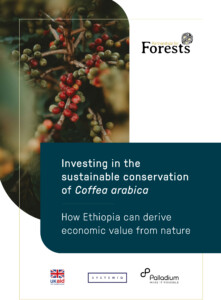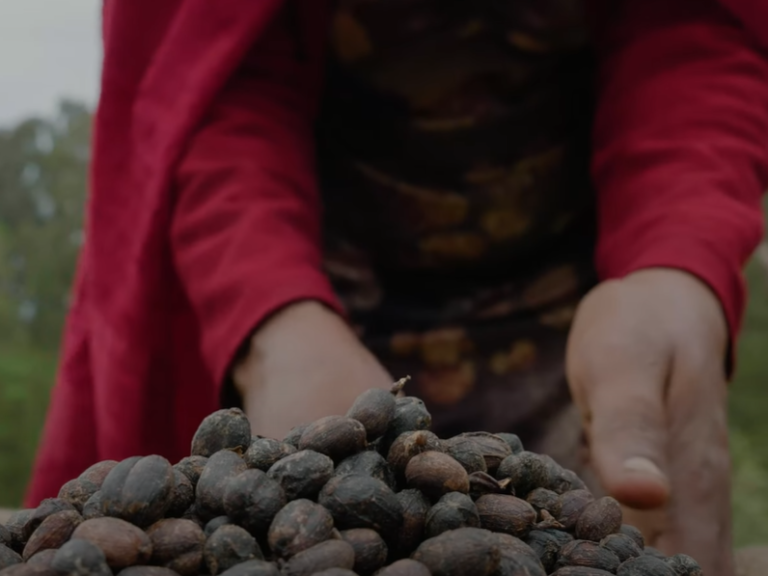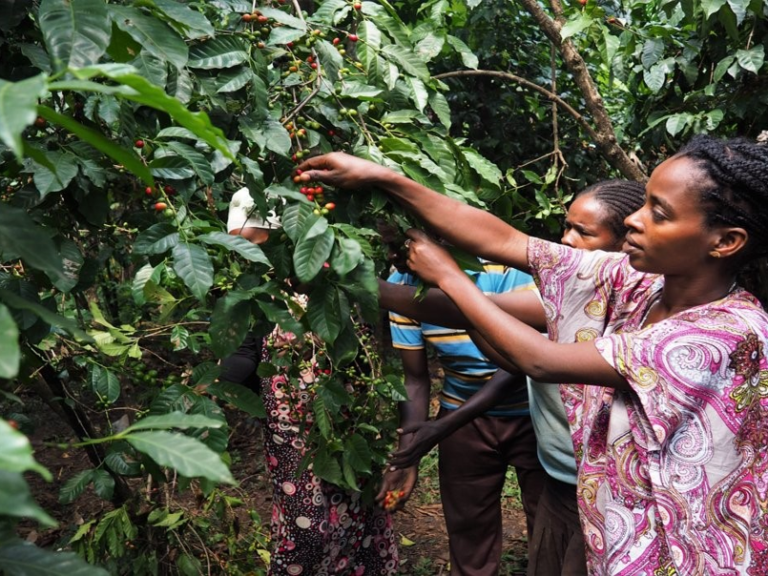This policy brief takes lessons from a study into the economic values of Coffea arabica biodiversity in Ethiopia and provides actionable steps that the Ethiopian government can take to enhance forest coffee and the economy around it.
The Ethiopian Wild Coffee (EWC) project, supported by Partnerships for Forests, aims to improve the quality of coffee produced in Ethiopia and attract buyers from the global specialty export market, securing better prices for farming communities, while ensuring protection of conservation (planting) areas. The project fosters partnerships between private sector and government entities that promote sustainable farming practices and land use, and support restoration efforts.
As part of its conservation goal, the EWC project commissioned a study in 2020 on the economic values of Coffea arabica biodiversity in Ethiopia. The study explored the economic benefits of Coffea arabica in producing improved coffee cultivars with desirable traits such as high yield, disease resistance, climate change resilience and mitigation, caffeine content, and ‘cupping’ (tasting) scores, and the ecosystem service of the coffee forest in climate change mitigation.
The study shows that Coffea arabica’s genetic biodiversity can enhance coffee quality and bring economic benefits to Ethiopia if the government takes appropriate actions.

Download



